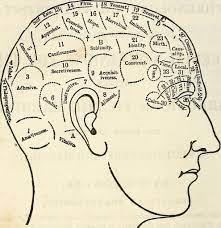
The Nature of Intellect
Intellect, at its core, refers to the capacity for deep thinking, reasoning, and understanding complex ideas. It encompasses the ability to analyze information critically, make connections between various concepts, and engage in abstract thinking. Intellect is not solely dependent on one’s cognitive abilities but also encompasses emotional intelligence, creativity, and intuition.
One key aspect of intellect is its focus on the quality of thinking rather than the quantity of knowledge. Individuals with a high level of intellect tend to possess a deep understanding of subjects, often displaying a penchant for philosophical inquiry and critical analysis. They are driven by curiosity and have a natural inclination towards seeking knowledge and understanding.
Moreover, intellect is not limited to academic pursuits; it extends to various domains such as art, literature, and music. Intellectual individuals often exhibit a strong appreciation for aesthetics and engage in creative endeavors that challenge conventional norms.
The Essence of Intelligence
Intelligence, on the other hand, refers to the overall cognitive ability of an individual. It encompasses a range of mental capacities, including problem-solving skills, memory, logical reasoning, and linguistic abilities. Intelligence is often measured through standardized tests such as IQ tests, which provide a numerical representation of an individual’s cognitive abilities.
Unlike intellect, intelligence places emphasis on the efficiency and speed of cognitive processing. Intelligent individuals excel in tasks that require quick thinking, pattern recognition, and logical deductions. They possess a broad knowledge base and can easily acquire and retain information.
Intelligence is not limited to academic or intellectual pursuits but is applicable to various fields, including business, science, and technology. Intelligent individuals often excel in their chosen domains due to their ability to grasp complex concepts quickly and apply them effectively.
The Distinction: Intellect vs. Intelligence
While intellect and intelligence share some commonalities, they differ in several fundamental aspects. The primary distinction lies in their focus and scope. Intellect emphasizes the quality of thinking, depth of understanding, and the ability to engage in abstract reasoning. Intelligence, on the other hand, emphasizes cognitive efficiency, quick problem-solving, and the acquisition of knowledge.
Another crucial difference is that intellect is a more holistic concept that encompasses emotional intelligence, creativity, and intuition. It recognizes the importance of subjective experiences and the ability to empathize with others. Intelligence, however, is primarily concerned with cognitive abilities and does not consider emotional or creative aspects.
Furthermore, intellect is often seen as a product of nurture rather than nature. It can be developed and enhanced through education, exposure to diverse ideas, and critical thinking exercises. Intelligence, on the other hand, is believed to have a significant genetic component and is relatively stable throughout an individual’s life.
The Implications for Individuals and Society
Understanding the distinction between intellect and intelligence has important implications for individuals and society as a whole. Recognizing the value of both concepts allows for a more comprehensive assessment of an individual’s abilities and potential.
In educational settings, it is essential to foster both intellect and intelligence. While intelligence-focused approaches may prioritize standardized testing and rote memorization, nurturing intellect requires encouraging critical thinking, creativity, and exploration of diverse perspectives. A balanced approach that values both intellect and intelligence can lead to more well-rounded individuals capable of adapting to various challenges.
In society, an overemphasis on intelligence can lead to a narrow definition of success, where individuals are judged solely based on their cognitive abilities. Recognizing and valuing intellect, with its focus on deep understanding and critical thinking, can foster a more inclusive society that appreciates diverse talents and contributions.
Conclusion:
In conclusion, intellect and intelligence are distinct yet interconnected concepts within the realm of human cognition. While intellect emphasizes the quality of thinking, understanding, and creativity, intelligence focuses on cognitive efficiency, problem-solving, and knowledge acquisition. Recognizing and nurturing both intellect and intelligence is crucial for personal growth, educational systems, and societal progress. By embracing the nuances of these concepts, we can foster a more comprehensive understanding of human cognition and unlock the full potential of individuals and society.
